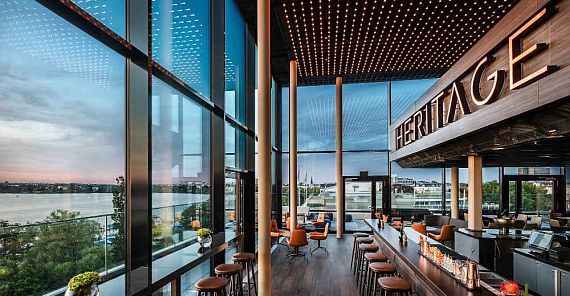
News & Stories
Munich. The deck is being reshuffled on the real estate markets. And the return to normality is much more complex than expected. For many hotels, this could soon spell the end. But what will become of distressed hotels and construction projects? Repurposing, conversion? Easier said than done. High costs of remodelling, floor plans and various extras make a quick conversion an elusive target.
Milan/Rome. A segment hit hard by the pandemic still has a bright future in the medium period and especially in the leisure market. This is how the hotel industry is viewed by some of the most important asset management companies in Italy.
Munich. Successful operator models are struggling due to Covid-19 – as several owners are unwilling to compromise during the crisis. This Tuesday, MHP Hotels operating four Le Méridien Hotels in Germany, terminated its agreement for the former Parkhotel near Frankfurt central station. "That is not nice, but it doesn't throw us off track either," says MHP's Managing Director Joerg Frehse. At the same time, he asks himself: What else can you do? We remain cooperative and transparent, adjust all the sales parameters, and generate enough revenue to be able to keep the hotels open even during the crisis.
Madrid. Recently, many media have echoed the sale of hundreds of Spanish hotels through websites usually focused on homes or properties or even other types of goods, such as used cars. There seems to be a feeling that the pandemic has opened the spigot of online sales, but the reality is somewhat more complex.
Chicago. Next Tuesday, 10 November, will be a small regional highlight for the Hyatt Hotel Corporation for the first time in a little while now: The Chicago-based group is set to announce The Wellem Düsseldorf as the first hotel of its soft brand The Unbound Collection by Hyatt in German-speaking Europe. Occasion for a talk with Felicity Black-Roberts, Vice President Development Europe, about Hyatt activities and motivations through the corona era.
Rimini. If the cities known as Italian’s Big 4 own the greatest part of the urban hotel cluster's overall value by far, Emilia Romagna is undoubtedly the queen of the sun & beach locations. According to these pre-Covid data, experts now expect the prices to decline significantly.
Königswinter. In September, German hotels nationwide achieved 37.5% occupancy. A fiasco. Corona forces more and more hotel operators to their knees, while others continue as in the 2019 boom - with full-blown announcements. Rich parents make it possible.
Munich. Digital co-exhibitors can still register! For the Expo Real Summit as well as for HospitalityInside's new "HospitalityHub" in the MASEVEN, off the fair, where you can also welcome business partners - virtually and physically.
Those who would like to join the trade fair marketing pool still have the opportunity to do so now. Even though advertising in printed matter is no longer possible, the digital marketing options important for logo partners are still available, both on the Expo Real pages and on hospitalityInside.com.
In the new HospitalityHub, part of the new HospitalityInside Marketplace, the video chat functions are particularly suitable for quickly and easily contacting virtual exhibitors. At the same time you have the possibility to book a workspace for live meetings during the Summit at the apartment hotel MASEVEN in Dornach, only 1.6 km away from the fair. This is also attractive for digital exhibitors and visitors who do not want or are not allowed to be at the fair themselves.
HospitalityInside shows its flag in Maseven and on its own website! And is happy about everyone who joins in at the last minute. Especially the costs for co-exhibitors are very reasonable this year compared to the regular fair: The package price of 1,900 Euros includes the registration fee at the fair, a digital passport and the presence on the marketplace of HospitalityInside for one year.
If you want to come to Munich, this year you can expect very reasonable overnight accommodation rates even close to the fair, as well as the opportunity to meet colleagues at the Summit or even without a fair ticket in our HospitalityHub in MASEVEN.
And it is also great that our networking event BRICKS & BRAINS can take place - of course in a slightly smaller setting.
No fear of corona: MASEVEN is part of the Landkreis München, so it is not affected by any regulations in the context of corona precautions which are pronounced for the city of Munich. The trade fair itself provides at least 10 square metres of space per visitor as well as a broadly based and approved hygiene and safety concept for the Summit.
We look forward to seeing you in Munich!
Contact us: Michael Willems, phone +49 821 885 880 20, michael[at]hospitalityInside.com
Wiesbaden. At the beginning of the corona pandemic, many hotel developers were still confident that the slump in development would not be too drastic. Yet every project also needs an operator, and operators in particular could be more reticent in future given the dramatic drops in revenue and occasionally also uncooperative owners. hospitalityInside.com measured the mood and also asked about development trends.
Wiesbaden. How serious are the negative effects of the Corona crisis on the hotel real estate market? It is not yet clear. The industry is still struggling to get its operations back up and running at all. The real estate industry is supporting the hotel industry in this, but it will not be able to prevent the fall in prices.





